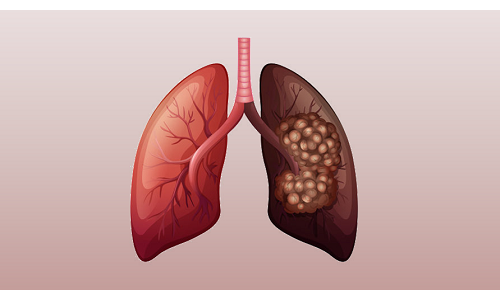A new study by the International Agency for Research on Cancer (IARC), finds there is no association between circulating vitamin D levels and lung cancer risk. The report presents a robust analysis of more than 5300 case–control pairs nested within 20 international prospective cohort studies. This is the largest observational study to date on the relationship between vitamin D and cancer.
Paris (ISJ) – A new study by the International Agency for Research on Cancer (IARC), published online in the Annals of Oncology, found there was no association between circulating vitamin D levels and lung cancer risk. The report presents a robust analysis of more than 5300 case–control pairs nested within 20 international prospective cohort studies. This is the largest observational study to date on the relationship between vitamin D and cancer.
Vitamin D is produced primarily in the skin after exposure to ultraviolet B (UVB) radiation. A secondary source of vitamin D is via diet or dietary supplementation.
The role of vitamin D in protecting against lung cancer has been a topic of debate, with a number of earlier, smaller studies suggesting that high vitamin D concentrations could protect against lung cancer.
This large new study aimed to provide a precise, definitive answer as to whether circulating vitamin D may affect lung cancer risk. Instead of relying only on self-reported smoking information (as previous, smaller studies have done), this study included an analysis of cotinine (a nicotine metabolite found in blood), which provided an objective measurement of recent tobacco exposure. The data also include robust estimates concerning vitamin D and lung cancer among former and never-smokers.
“The results are based on the most comprehensive data available and clearly show no association between high vitamin D concentrations and lung cancer risk”, says Dr Paul Brennan, the principal investigator of the study, “Our results are important because many prevention strategies are still focused on vitamin D supplementation as a protective measure against a number of diseases, including cancer.”
Lung cancer is the deadliest cancer in the world, accounting for nearly 1.7 million deaths every year and 20% of all cancer deaths overall. Lung cancer survival rates are dismal, with the majority of lung cancer patients dying within 5 years of diagnosis, regardless of disease stage.
The main cause of lung cancer is tobacco exposure. The primary and most important lung cancer control measure is smoking cessation, but the lifetime risk of lung cancer among former smokers remains high, and never-smokers are also at risk.
“Given the high incidence of lung cancer worldwide, it is vital to prioritize efforts to reduce tobacco smoking and to identify additional preventive measures that may help to reduce the risk of the disease”, says Dr Christopher Wild, Director of IARC, “However, despite previous smaller studies suggesting that high vitamin D concentrations could protect against lung cancer, these new results do not support the idea of vitamin D supplementation for the primary prevention of lung cancer.”


